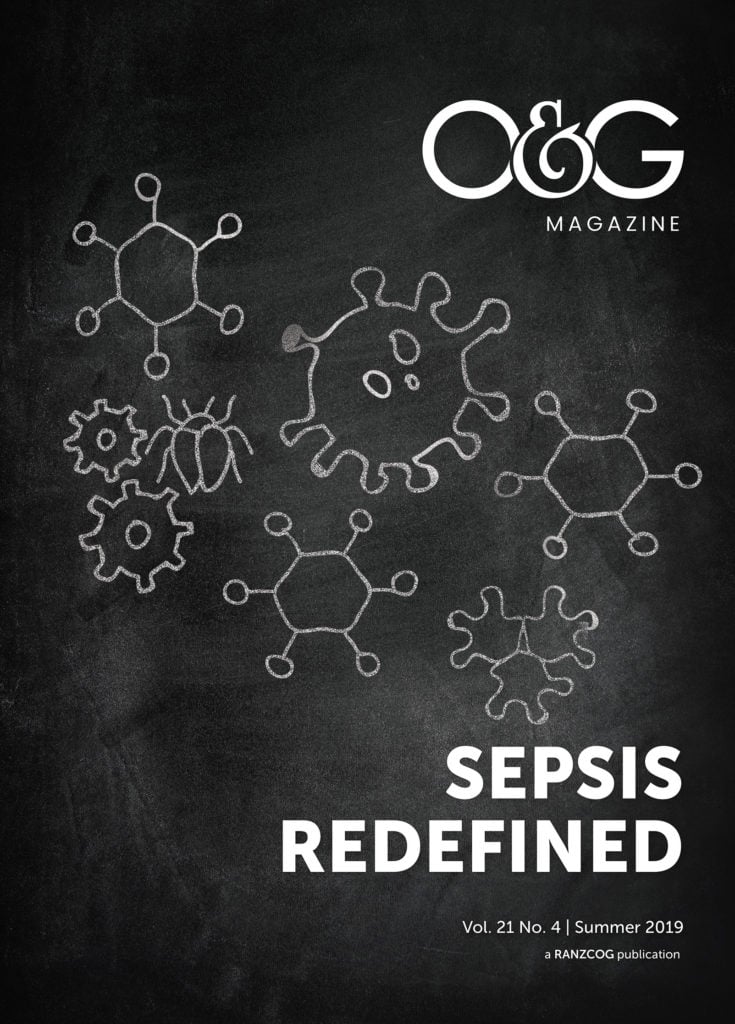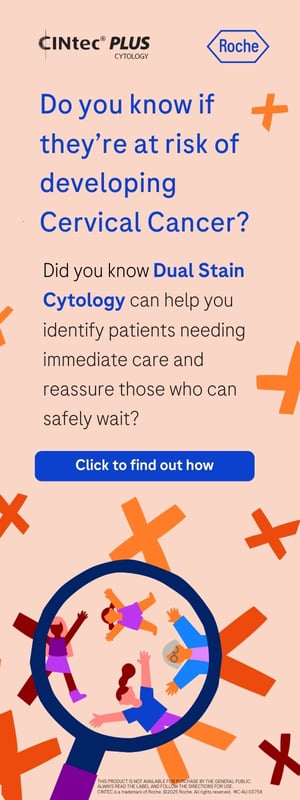This issue of O&G Magazine explores the subject of sepsis. As we know, sepsis may arise in pregnancy at any time: before delivery, during labour or postpartum. Its source can vary and the onset can be gradual, subtle, but with very harmful effects: pregnant women with severe sepsis may appear very well before suddenly collapsing, with little or no warning. In gynaecological practice, sepsis is relevant in both surgical and non-surgical settings. Prophylaxis, timely recognition of infection and appropriate management, both antimicrobial and supportive, is complex. We welcome the scholarship and discussion in this issue, which will contribute to our knowledge of, and help us manage, these potentially life-threatening conditions.
Earlier in the year, I was contacted by a bereaved father following the death of his daughter from sepsis in pregnancy. I assured him that the College would address the issue of sepsis; educating and informing our members. While nothing can heal the distress of that family, or any other family’s loss of someone they love, I hope that this issue of O&G Magazine sends a message of care and compassion, and our determination to reduce the risk of another tragic loss.
In developed countries, such as Australia and New Zealand, we are lucky we have quality healthcare systems that help identify severe sepsis, thus saving lives. However, there are inequities in healthcare within our own countries, particularly among Aboriginal, Torres Strait Islander and Māori communities. Additionally, there are many places across the world that are not as fortunate. Internationally, RANZCOG continues to make significant contributions to the provision of safe, high-quality healthcare. RANZCOG recognises our responsibility in the Pacific and, led by a hugely passionate group of members and trainees, we are committed to improving the health of women and their families in our region. I have attended several conferences in our neighbouring countries this year, meeting remarkable, dedicated and skilled individuals doing what they can to make a difference to their communities, and I look forward to RANZCOG’s continued support and collaboration in the years to come.
At the Annual Scientific Meeting in November, I launched the College’s first Gender Equity and Diversity Report, which formalises the College’s commitment and determination to increase gender equity and diversity within RANZCOG leadership. We acknowledge that barriers, including implicit bias and current stereotyped leadership styles, may have impeded leadership opportunities for women and other groups, including specialist international medical graduates. These barriers have restricted training opportunities for some members of RANZCOG, reduced opportunities for some members to participate in RANZCOG events and participate in their workplace, and, affected participation for some RANZCOG employees. Actions we have committed to include, but are not limited to:
- Consideration for a minimum target of 40 per cent female and 40 per cent male Board representation for all future RANZCOG Boards
- Engage with the Australian Commonwealth Workplace Gender Equality Agency to progress gender equity, inclusion and diversity policies across all areas of the College, directed towards leadership, training, academic events, hospitals and other workplaces
- Identify and respond to barriers to participation in RANZCOG leadership
- Establish an online Gender Equity Resource Kit for all RANZCOG members
- Provide all current Councillors with training on implicit and explicit bias
- Implement a target of 30 per cent female representation for RANZCOG examiners in 2020, and a target of 40 per cent female representation for RANZCOG examiners from 2021
- At College-affiliated meetings, the targets for speakers will be minimum 30 per cent women in 2021, minimum 40 per cent in 2022 and 50 per cent in 2023
- At trainee selection, consider the use of blinded resumes
- Investigate the need, role and impact of quotas or targets at trainee selection
I encourage all of you to read the report on the RANZCOG website. Your feedback is always welcome.
As this is the last issue of O&G Magazine for 2019, it is a good time to pause and reflect on the year that has passed. During my 20-year membership of RANZCOG, I have never before witnessed this level of engagement from our membership. Through meetings, emails, phone calls and social media, our membership is calling upon the College to be the voice of women’s health in Australia and New Zealand. Our members want their College to maintain high standards in training, accreditation and clinical guidance. But they also want RANZCOG to be an advocate for women, for Aboriginal, Torres Strait Islander and Māori communities, refugees, and the right of all people to access quality healthcare, to address the social and cultural determinants of health.
In NSW, after years of tireless campaigning from consumers, politicians and the medical community, abortion was finally decriminalised in September 2019. This historic change will ensure that women are able to access and receive the healthcare they need in a timely, professional, compassionate and respectful manner. Your College worked in collaboration with AMA (NSW), NSW politicians across the political divide and consumer bodies, and our contribution was acknowledged and appreciated by all involved. The debate continues in New Zealand and South Australia and we remain hopeful for a positive outcome.
Like any organisation, we face challenges. It is how we respond to these challenges that will define us. We need to confidently address issues of sexism, bullying and harassment, and foster a culture of inclusion and respect. We need to be a College that is fit for purpose today, and future-proofed for the challenges ahead of us. I believe that with a supportive and talented Board, the Council and its hard-working Committees, the skilled College staff, and the passion and commitment of our members and trainees, we can be confident in the future prospects of RANZCOG.
As the year draws to a close, reflect on the importance and value of the work that we do, our service to the community. Take time for yourself, caring for your physical health and emotional wellbeing. You matter. Have a safe and restful festive season, and see you in 2020.






Leave a Reply